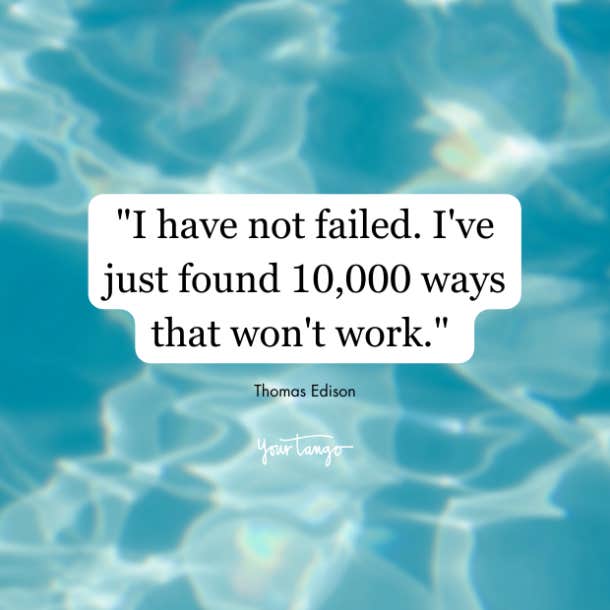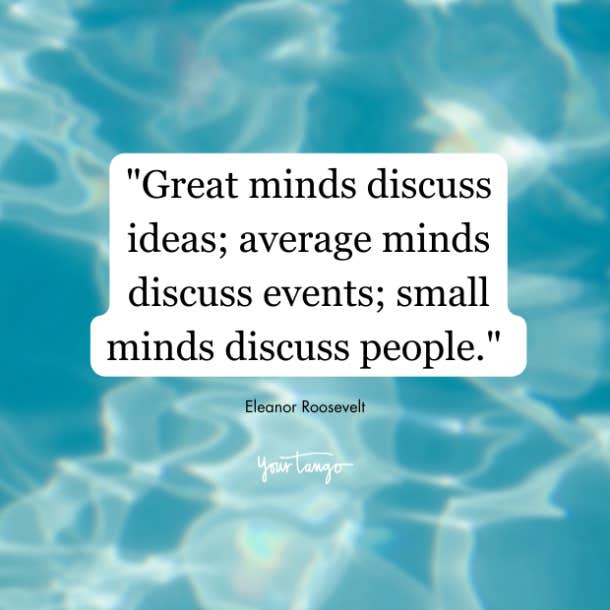
The dominant features of people who live to 100 years old.
By Pamela D. Wilson — Last updated on Aug 08, 2023
Photo: Oneinchpunch / Shutterstock

Do you agree with these familiar wisdom statements? I'm certain they will be familiar to you:
Life is what we make it. No excuses. No blaming others. No re-living experiences that we would rather forget.
We are the masters of our lives. One door closes — another opens. What we believe, we can create.
If so, you may be in the winning group of people who possess the personality traits that mean they are the most likely to outlive their peers and feel happier throughout life.
If you don’t agree with them, the time is now upon you to embrace and initiate new ways of thought and behavior so you can live the happiest, healthiest life possible.
So, what are these traits?
RELATED: Your Most Admirable Personality Trait, Based On Your Zodiac Sign
Because of certain life experiences, I've met some of the most amazing older adults, all around 100 years of age and older. They generously shared with me their secrets to a long and happy life.
All of them had positive outlooks. They laughed and were open to new experiences. And many had close friends who were younger— by as much as twenty years.
Some of them survived horrific experiences, like the Omaha Beach landing in World War II.
(Side note: for those of you who have only read about World War II in history books, watch Stephen Spielberg's movie Saving Private Ryan. My old friend confirmed that this movie was as close to the real deal as could be relayed through a film.)
Others lost all of their children and outlived multiple spouses. Some began new hobbies, like hiking the Grand Canyon at the age of 65.
In all of our conversations, each of them posed a variation of this question: "What am I still doing here?", or, "Why was I spared?"
It's never too late to learn, and here's what I learned from these dear friends:
Five personality traits of people who live the longest and happiest lives:
1. Be Purposeful
Finding a purpose in life isn't only possible, it is critical to living your best life.
How many times have you had the instinct to follow an idea, but let the idea wither and die? Maybe you listened to someone who said that your idea would never work. Life has many naysayers.
Throughout our lives, our shoulders may be "tapped" with little reminders. We ignore the reminders until something happens that takes away any doubt that it is time to move forward or wither. This something may be a tragedy like losing a job, getting divorced, receiving a serious health diagnosis, like cancer, that we choose to fight, or losing a loved one.
For me, it was losing 50 percent of my immediate family by age 40. My oldest sister died in a car accident when I was 17. My mother died when I was 35 and my father several years later. Eight months after my father died, my oldest brother died. Tragic? Yes and no. These experiences were a blessing in disguise. As a result, I found my purpose.
Looking back, at the age of 17, in a career counseling session, one of my desires was to "help old people." I walked away from a social work scholarship into corporate America. My corporate career taught me amazing business skills I would not have acquired if I had accepted the scholarship.
After the death of my family members, I made the choice to leave a very promising corporate career and start my own company. There were many naysayers who told me I was crazy and that I would fail. Life showed me my purpose. I accepted the invitation.

"What seems to us as bitter trials are often blessings in disguise." — Oscar Wilde, "The Importance of Being Earnest"
While your life may not have similar tragedies, your purpose is there waiting, if not yet discovered. Ask the universe and your purpose will be presented to you. You may already know your purpose and have not had the courage to make the leap.
What are the activities you love and do in your free time? Do you have special talents? Volunteer to see if you can translate your skills to work. Explore.
Accept the invitation. Life has a way of opening doors, which leads us to...
2. Stay optimistic
People who live longer and happier lives are optimistic. This does not mean that they wear rose-colored glasses and ignore life. This means that they combine optimism with persistence. Persistence is never giving up regardless of how tough the situation becomes.

"All our dreams can come true if we have the courage to pursue them." — Walt Disney
Becoming discouraged is easy. Being fearful of trying new things is normal. Push yourself to do something new every week and the "trying" will become easier. Eliminate the word "trying" from your vocabulary and replace it with "I will."
Confidence is gained through small accomplishments and then repeating those small accomplishments. A goal that might have looked like a mountain is now only a small hill. Be courageous!
My 100-year-olds were positive thinkers. Many experienced life situations that others would view as tragic. They had the life experience to realize that things happen and knew the importance of getting out of bed each day and going on. Experiences are neither good nor bad, but they are how we perceive them to be. Many used humor to make it through days when they wanted to cry.
RELATED: 32 Exquisite Character Traits To Develop In Yourself — And Your Kids
3. Remain conscientious
Some people may tell you that you can "fly by the seat of your pants" and accomplish great things; this is a rare result.
Words that describe being conscientious are diligent, industrious, dedicated, meticulous, follow-through, attentive, hard-working, studious, rigorous, and painstaking. Do any of these apply to you?
Achieving your purpose in life requires a plan. Sometimes an extremely detailed plan. If you want to accomplish a goal in 90 days, do you know the steps to take?
Begin with a calendar and work backward. What are the exact steps necessary to meet the goal? How much time must you devote? Are there activities you must forego — like going to the movies on Saturday — so that you can work to accomplish the goal? What resources will you need? What skills must you learn that you do not currently possess?
By having a plan, success will be more likely.
Even if you do have a plan, success is not always guaranteed the first time. As you work through your plan you will learn what works and what does not work. Did you underestimate the time a certain task would take? Did you not realize the extent of what you must learn?
Are you able to look at these snags as learning opportunities rather than failures? That light bulb in the lamp on your table was invented by an older adult born in 1847 who lived to the old age of 84. Yep, it's Thomas Edison.

"I have not failed. I've just found 10,000 ways that won't work." — Thomas Edison
Be conscientious, plan, update your plans, be open to learning, and never give up. Keep going until you succeed.
My grandmother from Poland learned to write in English in her early 80s. Garnet, one of the centenarians (the term for people over age 100) began climbing the Grand Canyon at age 65 with persons 20 years her junior. She maintained these relationships well into her 90s.
Giving up on life is never an option. There is always some new adventure to conquer and a new person to meet.
4. Aim to be emotionally stable
Having emotional stability allows us to cope with changes in life without responding with an intense reaction — positive or negative. Knowing that we have the ability to control how we react to situations is important.
Emotional stability supports purpose by allowing the mind to realize that setbacks will occur.
Rather than being discouraged by the setback, emotional stability helps us persist. There is a reason for everything, even delays and forward movement. While feelings of disappointment may be experienced, refuse to give in.
Refuse to stop. Refuse to listen to others who tell you that you can’t.
There is a way to achieve every goal if one is willing to acquire the skills and put in the time. Practice and learning are components of fulfilling your purpose in life. Great accomplishments require an emotional commitment.
Athletes are an excellent example of the power of emotion. Sports is a highly competitive arena. Emotions during competition can quickly change from elation to disappointment to frustration to anger. How many times have you seen tennis pros throw a racket or a football player toss a helmet?
These are emotional expressions that question the stability of the individual athlete and fail to give confidence to a team.
Peyton Manning is someone who was very likable as a professional athlete, and he has many humorous appearances on Saturday Night Live.
But, on the football field, he was 1000 percent competitive and a stickler for details.
According to his former coach, Tony Dungy, if Peyton said he was going to do something at a specific time, "you can set your satellite by it."
Being emotionally stable means that we have positive relationships with others. Positive interpersonal relationships allow us to work on teams and accomplish more than we might, individually.
We have the ability to look at situations positively. We give others second chances when mistakes occur. We realize that we are all human, doing our best on any given day. We use and build on the talents we were given.
Related Stories From YourTango:

"Great minds discuss ideas; average minds discuss events; small minds discuss people." — Eleanor Roosevelt
Being emotionally stable also means having character and integrity. We don’t speak about others behind their backs. We defend our friends and seek the facts before doubting them. We are honest.
We don’t do anything that we would not want to appear on the front page of the newspaper in a positive manner. We talk about bigger things and avoid gossip.
5. Remain open to opportunity
The ability to achieve purpose in life is creating our own opportunities. Life doesn't wait for us. By being conscientious and planning, doors open. Opportunities are created. By asking the universe for assistance the right doors open at the right time.
Being open requires the ability to be an extrovert when needed. We have to go for it rather than stand in the corner and hope that life comes to us. We must fully engage in life and pursue our dreams.

"Opportunities don't happen. You create them." — Christopher Grosser
The right time is also an important concept for fulfilling your purpose and achieving your goals. Many of us want things to happen now.
We look at others who "made it look easy." But, those who make it look easy put in thousands of hours of time and effort. They gave up free time to work or practice. They were up at 4 am while their friends slept in. They gave up dinners out and vacations to achieve a long-term goal. They invested time to learn new skills.
Much to our disappointment, our time is not always the time of the universe. Delays happen. Detours occur.
If we are optimistic, conscientious planners, emotionally stable, and open to new opportunities, success will occur. My 100-year-olds knew this and led productive and successful lives.
One last piece of advice, when you're seeking happiness, is to find mentors and role models. Look at what the successful do and model the behavior. Be open to new ideas and systems. Try new things. Be open to learning. Doing so will accelerate your learning curve.
And if you have grandparents, call or visit. Ask them about their life experiences. Learn from their wisdom. Ask about their role models. You never know, they might have the 5 personality traits proven to be happy and outlive their peers.
I wish you a long, successful, and happy life.
RELATED: What You See First Reveals Your Best Quality When It Comes To Love And Relationships
More for You:
Pamela D. Wilson, MS, BS/BA, CG, CSA, is a caregiving advocate who supports family caregivers and professionals working in healthcare, elder law, and financial planning. Subscribe to her free caregiving library for access to articles, podcasts, and videos.
